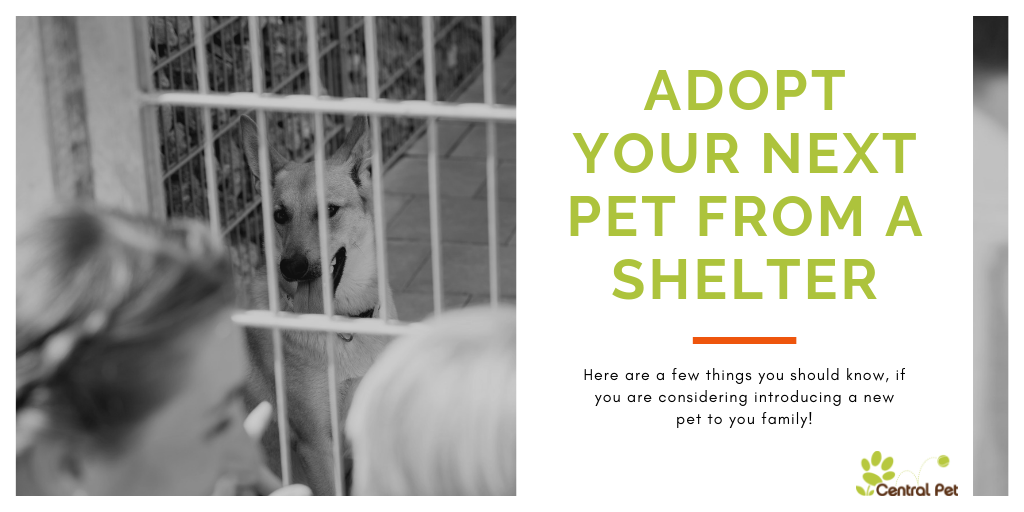Here are a few things you should know if you consider introducing a new pet to your family!
Shelters and animal rescues are temporary homes that are overflowing with approximately 5.8 million lifelong companions nationwide for the soon-to-be pet owner. People are often misled to believe that only “problem-pets” or abused animals end up in these facilities. However, this is nothing but a widespread myth. Oftentimes, pets are surrendered to shelters due to the failing health or death of their owners, relocation of their owners that doesn’t allow them to bring their precious fur babies, or the simple realization that the cute little puppy they adopted has become an energetic 80-pound dog that just isn’t happy in their apartment. There are a million reasons why pets end up in shelters, and the vast majority are similar to the ones just listed. Whatever the reason, plenty of pooches are ready to find a forever home with someone with a lot of love to share.
Common Breeds Found in Shelters
When it comes to dogs, most that enter shelters are of mixed origin. However, it’s not uncommon to find purebreds among them. Some of the most common dog breeds that can be found in shelters around the country include:
- American Pit Bull Terrier
- Labrador Retriever

- Chihuahua
- Boxer
- German Shepherd
- Beagle
- Dachshund
- American Bulldog
- Border Collie
- Australian Cattle Dog
- Jack Russell Terrier
- Australian Shepherd
- Shih Tzu
- Rottweiler
- American Staffordshire Terrier
You don’t necessarily need to rush off to a breeder if it’s a purebred cat you’re after, either. There are several shelters that deal with purebred cats including:
- Persian
- Himalayan
- Maine Coon
- Siamese
And if breed isn’t important to you, there are plenty of domestic kitties out there looking for someone to love.
Choosing the Right Pet for Your Lifestyle
If you are considering pet adoption, check your local shelters and rescue organizations. Most importantly, educate yourself and be prepared for the new responsibilities that will come with the pet you select, ensuring that they don’t end up back in a shelter again.
Here are three key factors you should consider in order to adopt the dog best suited for your lifestyle:
1. The Cost of the Pet
We’re not talking about adoption fees. Think about the size of the pet and what it will cost to feed them. That adorable St. Bernard puppy will soon become a 150 pounds and require quite a bit more money to feed than a smaller breed. Consider any health issues they may have and what the medical bills, medications, etc. may be. Consider the age of the pet and if they will soon require vaccinations, spay/neutering, or senior care. All of these questions will help you select a pet that you know you can afford for the long run.
2. How Much Time You’ll Need to Spend With the Pet
If you work long hours, travel often, or leave your home for long periods of time, a high energy pet could wreak havoc on your home and on the well-being of the pet. Consider the breed standards, temperament, and age of the pet. Younger puppies require significantly more supervision than older dogs. Certain breeds are more prone to higher energy levels, meaning they will need daily walks and lots of interaction at home. Dogs also require training, which requires an investment of both time and money, while cats are much more self-sufficient.
3. The Traits of the Breed
Siamese cats and Husky dogs are known for being extremely vocal. German Shepherds are very protective and tend to only bond with one individual. Mastiffs are known for being timid and shy while Singapura cats will constantly be getting into everything! Consider the breed norms and how they will affect your current lifestyle. If you have kids, a highly tolerant and submissive pet will give you peace of mind. If you want a dog who can go running with you, avoid medical bills by selecting a breed that is not prone to back problems or hip dysplasia. Does noise bother you? Then a vocal breed may not be for you. More of a couch potato? Opt for a rescue cat or an older dog. Senior rescue pets often make some of the best companions!
All of these things will help to ensure that you get a lifelong companion that fits your home and your lifestyle. Once you’ve narrowed down your selection, take the time to do a meet & greet or two, to ensure that you two hit it off. Observe how the pet reacts to you when you pet them, chase them, take toys from them, etc. And be sure to ask the shelter for the pet’s history. While some shelter pets may have a limited background, most client surrenders come with a medical history, previous training, and a small list of the pet’s likes and dislikes. This can be very helpful in understanding who the pet is and how they will fit into your life.
One of the best things about bringing home a rescue pet is that it changes an animal’s life--and your own. What could be better than that? If you need assistance adopting a pet in the Tucson area, we recommend speaking to someone at Pima Animal Care Center (520-724-5900) or The Animal League of Green Valley (520-625-3170) for assistance in finding your newest addition.
Originally published March 2018. Updated September 2025.






